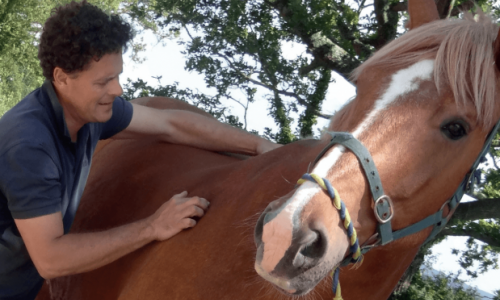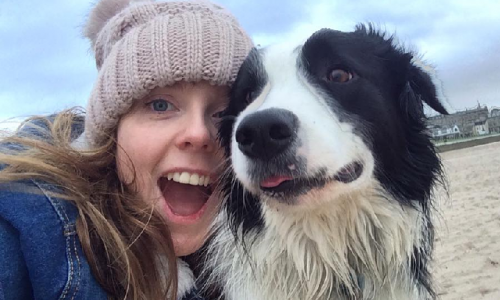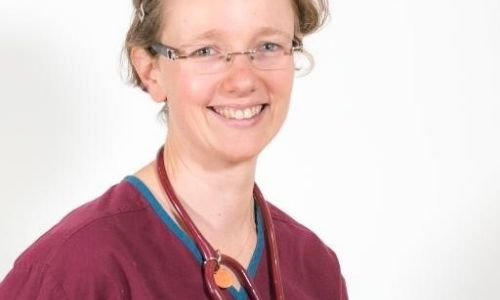Meet Matt: Agriculture Manager, Sainsbury's Supermarkets Ltd
"Most customers are detached from farming and the food production process, and most farmers are detached from the end product and what customers are demanding. This can create a very polarised debate on issues such as animal welfare and sustainability."
Matt Turner
Briefly describe your current role and professional interests
My work focuses on improving the health and welfare of animals in our supply chains and ensuring the responsible use of antimicrobials. I'm passionate about managing animal welfare through "corporate governance" - in a nutshell using business as a force for good to drive progress at scale!
When did you know you wanted to work in the veterinary profession?
I have quite an unusual back story in that I returned to vet school as a mature student with no intention of ever being a clinician! I always had an interest in animal behaviour and welfare, so initially went through the motions of applying to vet school after school but didn't really want to be "a vet". It's only after a few years of working in research and studying for an MSc in animal welfare and behaviour I realised I did want to be a vet after all, but not as most people think of it!
What is your favourite part of the job?
Most customers are detached from farming and the food production process, and most farmers are detached from the end product and what customers are demanding. This can create a very polarised debate on issues such as animal welfare and sustainability so I enjoy joining up these stakeholders to ensure our supply chains deliver the needs of everyone.
I also really enjoy using a data driven, outcome-based approach to drive continuous improvement in our supply chains. Livestock farming has a central role to play in many sustainability issues, and there’s no doubt we now live in a world of big data which agriculture needs to embrace to deliver the needs of customers, animals, and the environment in future.
What is the most challenging part of your job?
In vet practice, everything is focused around animal health, from business strategy, high levels of knowledge and passion, and even staff room chat! So it takes some getting used to going from that to working in such a huge organisation with so many different roles and departments, most of which have nothing to do with animal health. I've learnt the key is to understand how to zone out the noise and find out – where do I fit, what information is relevant, and who are the teams I need to build good working relationships with in order to drive change.
Do you have any tips for achieving a good work-life balance?
Find a way to mentally switch off from work when you're not there. I have a well-organised diary including weekly tasks and targets, not just essential activities, and I do an end of day checklist which puts my mind at ease and allows me to mentally check out at the end of the day. It's also really important to have quality time away from work. I have very few work-related hobbies or social events which makes it easier to separate work and non-work time.
How do veterinary professionals currently help to drive sustainability?
The UK has made great progress reducing the use of antibiotics in livestock agriculture over the last few years. This is in no small part down to vets working closely with clients to adhere to the 3Rs principles of reduce, refine, replace. This has needed sustained education, support and commitment from all involved, but it's great to see how much progress can be made when everyone gets behind sharing consistent messages and working towards a common goal.
What do you feel are the major opportunities to drive sustainability in the veterinary sector?
We need to ensure that we are the driving force behind future antimicrobial stewardship. I've heard people say they feel the profession has been too reactive to external pressures rather than proactively driving the agenda. Only we can prescribe antibiotics, so as gatekeepers, we need to be seen to lead the way. It's also in our own interests to show we're being proactive and seen as best placed to navigate the complexity of the issue, otherwise someone else will make decisions for us which might not be in the interests of animal welfare or our profession.
I also feel like this issue is still very much in its infancy. There’s been a lot of focus on antibiotic use in farm animals to date, but are we doing enough to tackle antibiotic use in companion or equine practice? Are we doing enough to safeguard the future effectiveness of other antimicrobials, such as anthelmintics? We need to be asking ourselves these questions and steering our own ship not waiting for external forces to scrutinise the practices of the profession on our behalf.
What are your top tips for veterinary professionals wishing to take the first steps to drive sustainability in their roles?
Find a sustainability goal that you care about, find a way to address it, and educate and mobilise people to the cause. I think most people want to do the right thing, but sustainability can be complex and it's hard to know what individuals can do.
Don't be put off by the scale of what needs to be done - all progress has to start somewhere. Find a way to measure the scale of the problem and monitor progress over time - this is essential in order to know if you're being effective and maintain your motivation to continue.
If you could wave a magic wand and make one improvement to drive the sustainability impact of the veterinary profession what would it be?
For everyone to feel part of the solution to the global sustainability challenges we face. For example, the most satisfied and inspiring farm vets I've met say they feel part of the "food industry" - when they reduce antibiotic use on a client’s farm, they're not only working with that individual farm but are also contributing to the collective efforts of the whole industry to address antibiotic resistance.
Similarly, changing an owners’ mind about buying a brachycephalic breed or using a blanket worming strategy are small victories which contribute to the collective effort of our profession to educate society and drive improvements to animal welfare. It's not always easy, especially in high-pressure clinical practice, but we all came into the profession to do good and that is as much about working at a population level as it is about treating individuals.
Meet the people who embed sustainability into their life and work
From the veterinary nurses who advise on responsible antibiotic use and lead welfare campaigns, to the practice managers who actively reduce the environmental footprint of their workplace — we recognise the scale of your impact.



